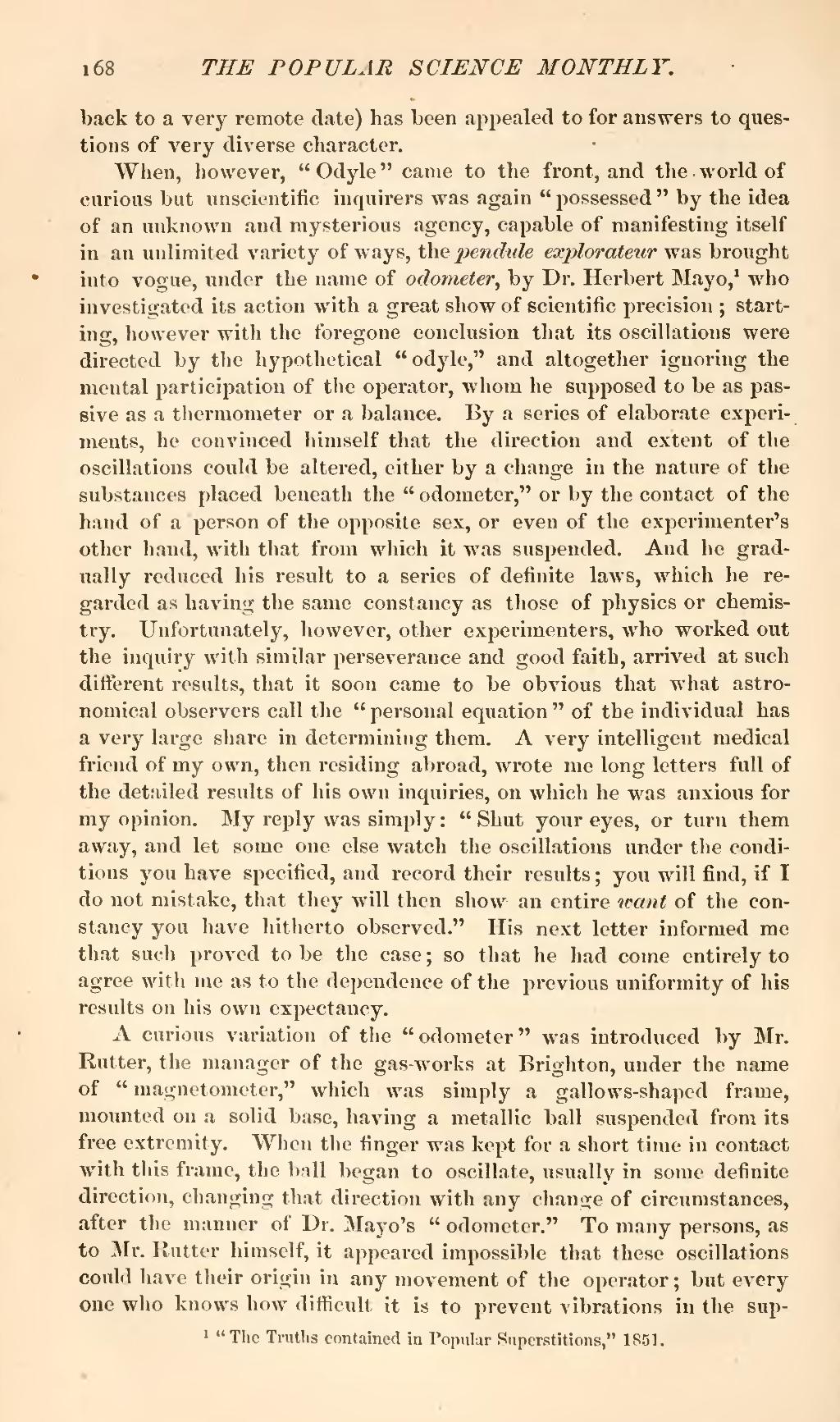back to a very remote date) has been appealed to for answers to questions of very diverse character.
When, however, "Odyle" came to the front, and the world of curious but unscientific inquirers was again "possessed" by the idea of an unknown and mysterious agency, capable of manifesting itself in an unlimited variety of ways, the pendule explorateur was brought into vogue, under the name of odometer, by Dr. Herbert Mayo,[1] who investigated its action with a great show of scientific precision; starting, however with the foregone conclusion that its oscillations were directed by the hypothetical "odyle," and altogether ignoring the mental participation of the operator, whom he supposed to be as passive as a thermometer or a balance. By a series of elaborate experiments, he convinced himself that the direction and extent of the oscillations could be altered, either by a change in the nature of the substances placed beneath the "odometer," or by the contact of the hand of a person of the opposite sex, or even of the experimenter's other hand, with that from which it was suspended. And he gradually reduced his result to a series of definite laws, which he regarded as having the same constancy as those of physics or chemistry. Unfortunately, however, other experimenters, who worked out the inquiry with similar perseverance and good faith, arrived at such different results, that it soon came to be obvious that what astronomical observers call the "personal equation" of the individual has a very large share in determining them. A very intelligent medical friend of my own, then residing abroad, wrote me long letters full of the detailed results of his own inquiries, on which he was anxious for my opinion. My reply was simply: "Shut your eyes, or turn them away, and let some one else watch the oscillations under the conditions you have specified, and record their results; you will find, if I do not mistake, that they will then show an entire want of the constancy you have hitherto observed." His next letter informed me that such proved to be the case; so that he had come entirely to agree with me as to the dependence of the previous uniformity of his results on his own expectancy.
A curious variation of the "odometer" was introduced by Mr. Rutter, the manager of the gas-works at Brighton, under the name of "magnetometer," which was simply a gallows-shaped frame, mounted on a solid base, having a metallic ball suspended from its free extremity. When the finger was kept for a short time in contact with this frame, the ball began to oscillate, usually in some definite direction, changing that direction with any change of circumstances, after the manner of Dr. Mayo's "odometer." To many persons, as to Mr. Rutter himself, it appeared impossible that these oscillations could have their origin in any movement of the operator; but every one who knows how difficult it is to prevent vibrations in the sup-
- ↑ "The Truths contained in Popular Superstitions," 1851.
